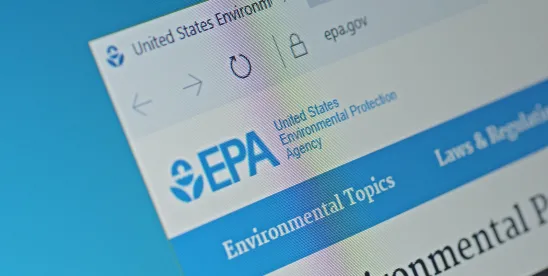The U.S. Environmental Protection Agency (EPA) proposed a landmark rule revising the Renewable Fuel Standard (RFS) program. This proposal – termed the “Set 2” Rule - marks the 20th anniversary of the RFS program and reflects a major policy pivot toward bolstering domestic renewable fuels production and exports and supporting U.S. agricultural producers. At the same time, the Set 2 Rule would eliminate the eRIN program in its current form.
RFS Program Background
The RFS program was established through the Energy Policy Act of 2005, as amended by the Energy Independent and Security Act (EISA) of 2007, to mandate a minimum volume of renewable fuel (e.g., ethanol, biodiesel, and advanced biofuels) to be blended into transportation fuel used in the United States. Companies that produce or import gasoline or diesel fuel used in the United States must blend renewable fuels or purchase credits known as Renewable Identification Numbers (RINs) to meet annual targets set by EPA. These annual targets, referred to as Renewable Volume Obligations (RVOs), specify the quantity of each category that must be used.
Key Takeaways for Clients
- Highest-Ever Renewable Volume Obligations (RVOs): Trade associations representing both renewable fuels and the oil and gas sectors had jointly written to the EPA Administrator asking EPA to adopt “strong, steady volumes” under the RFS, citing investments in the industry and “increasing demand in new markets such as marine, rail and aviation.” If finalized, the 2026-2027 requirements would establish the most ambitious RVOs in the program’s history, aiming to significantly expand U.S. production of biofuels such as biodiesel and renewable diesel; the Rule could also boost production of sustainable aviation fuel. The proposal maintains current volumes for ethanol and slightly reduces RVOs for cellulosic biofuel due to limited supply and production capacity.
- Differentiation between Domestic and Foreign Fuels: The proposal introduces a new two-tier structure for RIN valuation, granting domestic biofuels and feedstocks full credit while assigning only 50% RIN value to foreign equivalents. This framework is designed to favor U.S. producers and limit the RFS compliance value for imports.
- eRIN Program Overhaul: EPA proposes eliminating electricity generated from biogas used in electric vehicles (eRINs) as a qualifying fuel under the RFS program. This move signals a reorientation of the RFS away from supporting the electronic vehicle market and reinforces a focus on liquid biofuels.
- Small Refinery Exemptions. There are over 150 petitions for small refinery exemptions currently pending before EPA. EPA states that it anticipates deciding its approach to the 2026-27 exemptions by the time the proposal is finalized. The Agency structured the proposal to ensure that if it decides to grant these exemptions, the result will not be to reduce the overall renewable fuel obligation, as has occurred in the past.
- Energy Security Impacts: EPA estimates the proposal would reduce U.S. oil imports by approximately 150,000 barrels per day over 2026-2027. The U.S. is already a net exporter of petroleum products; the Set 2 Rule would further reinforce the nation’s status as a net exporter of petroleum products.
- Trade Implications: The Rule aligns with recent U.S. trade policy developments, including a new zero-tariff ethanol agreement with the U.K., reinforcing efforts to expand global markets for American-grown biofuels.
Next Steps
EPA will accept public comments until August 8, 2025, on the proposal following its publication in the Federal Register. EPA will host a public hearing on July 8 and July 9. Register for either hearing by emailing RFS-Hearing@epa.gov. We anticipate a final rulemaking later this year.







 />i
/>i
